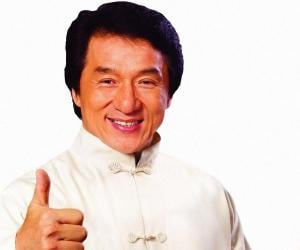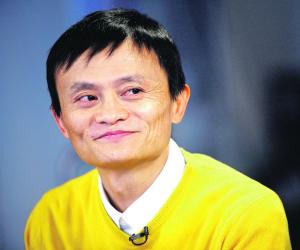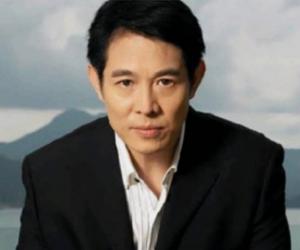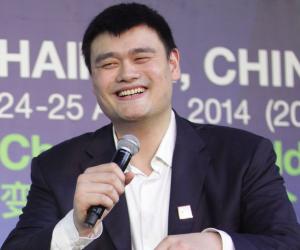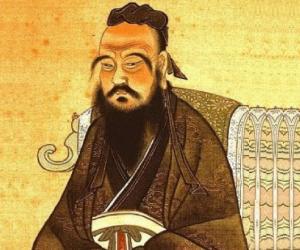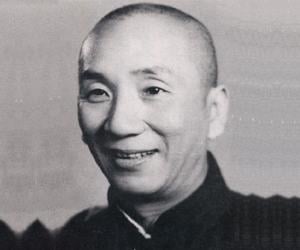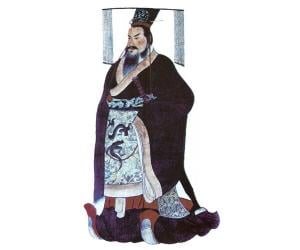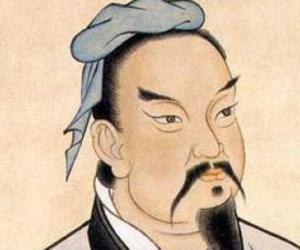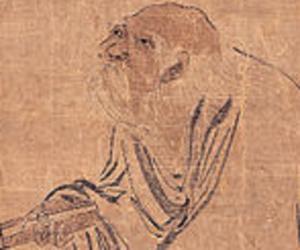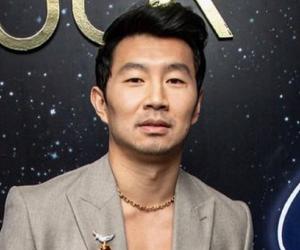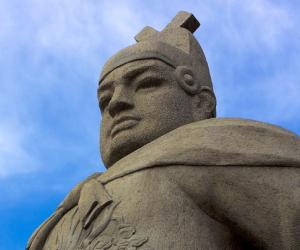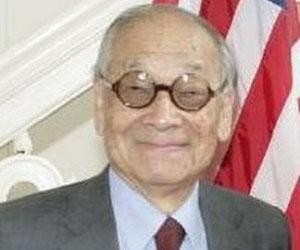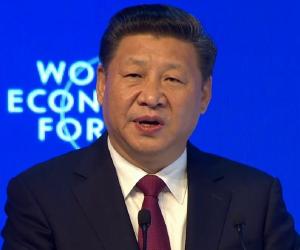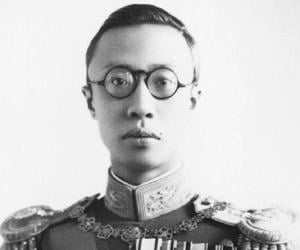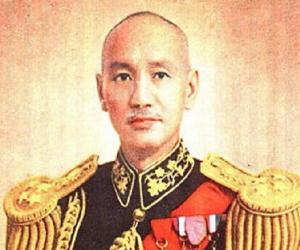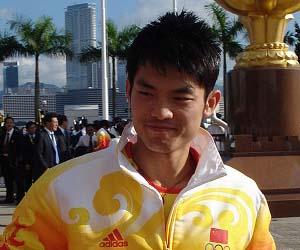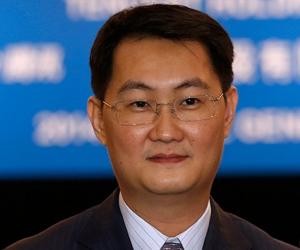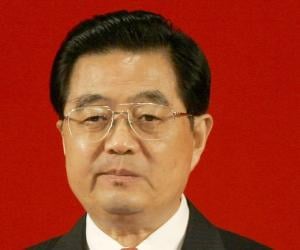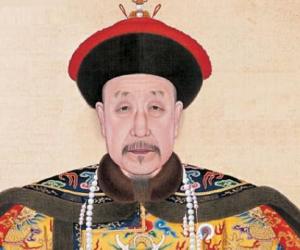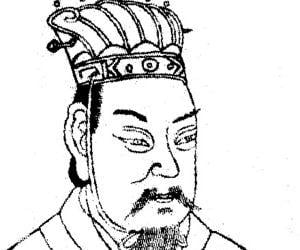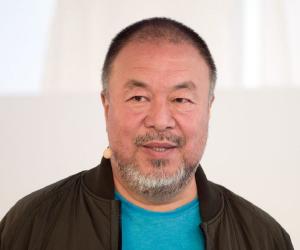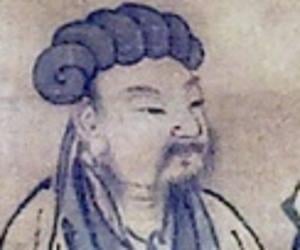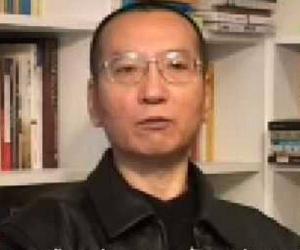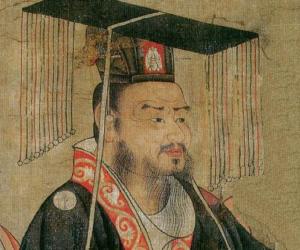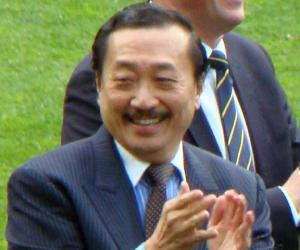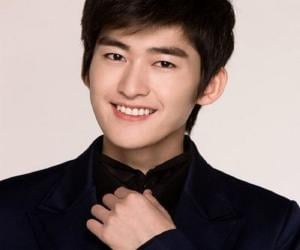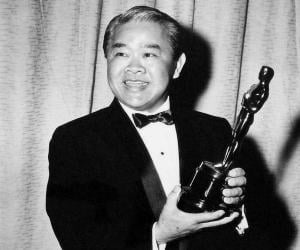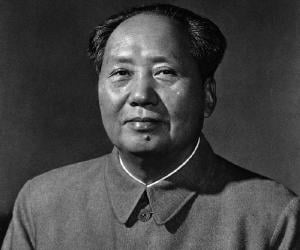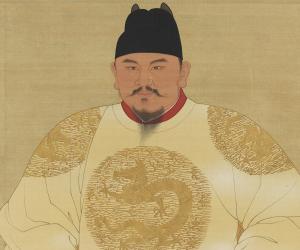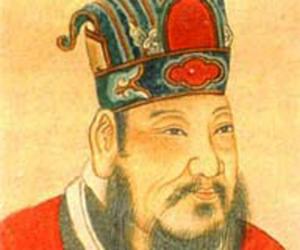Jackie Chan is a martial artist, actor, film director, screenwriter and singer and is known for his acrobatic fighting style, comic timing and innovative stunts in his films, which he performs himself. Rumble in the Bronx, Shanghai Noon and Rush Hour are some of his popular Hollywood films. He has a widespread following in both the Eastern and Western hemispheres.
Jet Li is one of the most popular Asian actors to have made it big in the American film industry. A martial artist and former Wushu champion, he won a national championship before retiring from competitive Wushu to focus on his acting career. Also a well-known philanthropist, Jet Li is closely associated with the Red Cross Society of China.
Widely regarded as one of the greatest Chinese basketball players ever, Yao Ming represented the Houston Rockets of the NBA. Known as the Ming Dynasty in the US, Ming's popularity and success in the NBA made him a symbol of China. One of China's most popular sportsmen, Ming is also credited with introducing the Chinese Basketball Association to the world.
Confucius was a Chinese philosopher whose philosophy came to be known as Confucianism. Confucianism is often credited with shaping Chinese communities and East Asian societies. Confucius is considered one of the most influential individuals in the history of mankind as his teachings have had a great impact on people around the world. His philosophy continues to remain influential.
Yip Man was a Chinese martial artist best remembered for teaching martial arts to the famous Chinese American martial artist, Bruce Lee. Yip Man is credited with teaching not only Bruce Lee but also many other students who went on to become martial arts masters. A biographical martial arts film titled Ip Man was inspired by his life and career.
Qin Shi Huang is credited with founding the Qin dynasty, the first dynasty of Imperial China. He reigned as the first emperor of a unified China from 221 BC to 210 BC. Under his rule, the Chinese state expanded greatly and he also enacted major political and economic reforms. His life and work inspired several films like The Emperor's Shadow.
Born in China, Simu Liu moved to Canada at 5. A business administration graduate, he took to acting after being laid off by Deloitte. Trained in martial arts, he initially found work as a stunt man. He is best known for his Canadian Screen Award-nominated role in Blood and Water.
Dylan Wang is a Chinese singer, rapper, model, and actor. He achieved international fame for his portrayal of Daoming Si in the popular TV series, Meteor Garden. Apart from being an entertainer, Dylan is also a basketball enthusiast. In 2019, he participated in a celebrity basketball game and helped his team secure a win at the Shanghai Oriental Sports Center.
I. M. Pei was a Chinese-American architect who drew inspiration from the garden villas at Suzhou when he was young. He is credited with founding I. M. Pei & Associates, an independent design firm, in 1955. Today, the award-winning firm is known by the name, Pei Cobb Freed & Partners. Pei is known for designing structures like the Mesa Laboratory.
Xi Jinping, President of China since 2013, is said to be the most powerful Chinese leader since Chairman Mao Zedong. He is an authoritarian leader and his reign is marked by an increase in censorship and deterioration in human rights . Also, China’s foreign policy under Xi has been more assertive, leading to a deterioration of relations with many countries.
Puyi served as the final emperor of China's last imperial dynasty, The Qing dynasty. After Manchuria was invaded by Japan, Puyi became a puppet at the hands of the Japanese and was chosen as the emperor of the puppet state of Manchukuo. He then signed many edicts, given to him by the Japanese, including the one that made slavery legal.
Chiang Kai-shek was a Chinese revolutionary who led the Republic of China between 1928 and 1975, first in mainland China until 1949 and later on in Taiwan until his death. He is credited with successfully leading the Northern Expedition against the Beiyang government, achieving Chinese unification. He was involved in a civil war with Communist Party of China, which he lost in 1949 and retreated to Taiwan.
With 666 career wins, including two Olympic and two World Cup golds, Lin Dan is one of the veterans of Chinese badminton. He is the only player to achieve a Super Slam, winning all nine major badminton titles. Known for his fitness and attacking style, Dan retired at 37.
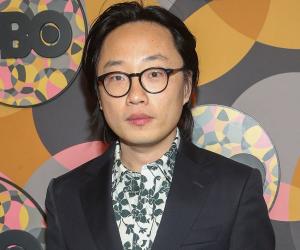
Born in Hong Kong, Jimmy O. Yang moved to the U.S. with his parents at 13. Although equipped with an economics degree, he found his calling in comedy and established himself as a talented stand-up comedian. He is now known for his roles in Silicon Valley and Crazy Rich Asians.
Chinese business magnate Ma Huateng, or Pony Ma, is best known as the founder, chairman, and CEO of the technology giant Tencent. His company owns the messaging app WeChat. One of CEOWORLD’s Most Powerful People in the World, he was a delegate of the 12th National People's Congress.
President of the People's Republic of China (PRC) from 2003 to 2013, Hu Jintao is believed to have given shape to the belligerent China that Xi Jinping unleashed on the world. He was conservative with political reforms and reintroduced state control in several sectors. Known for his reserved and modest leadership style, his tenure marked consensus based rule and collective leadership.
Chinese politician, Jiang Zemin, served as General Secretary of the Chinese Communist Party from 1989 to 2002. Qualified as an engineer, he joined the Chinese Communist Party when he was in college. Rising through the ranks, he eventually became a member of the Central Committee of the Communist Party, Minister of Electronic Industries.
Cao Cao was a Chinese warlord, poet, and statesman. He played an important role in laying the foundations for the state of Cao Wei, which was formed shortly after his death. Although he was posthumously honoured with the title Emperor Wu of Wei, Cao Cao never ruled as an emperor, but kept Emperor Xian under his control.
After making waves with his TV debut in A Rush to Dead Summer, Chinese actor Hu Yitian gained accolades and awards for his role of Jiang Chen in the Tencent series A Love So Beautiful. He has also appeared on reality shows such as Twenty-Four Hours.

After killing warlord Ding Yuan, Chinese army general Lü Bu ran away to work for another warlord, Dong Zhuo, whom he also killed. After assisting Yuan Shao, he fought against Cao Cao. He eventually lost to Cao Cao and Liu Bei in the Battle of Xiapi and was executed.
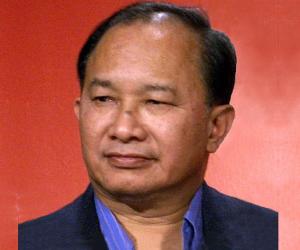
Deng Lun soared to fame with the xianxia series Ashes of Love. The star of The Yin-Yang Master film franchise, Lun was named Esquire’s Most Commercially Valuable Artist of the Year. He has also appeared in the series Flowers in Fog and the reality show Go Fighting!
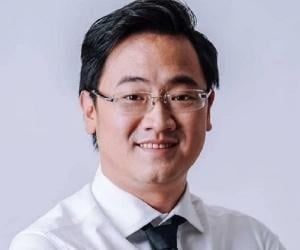
Chinese ophthalmologist Li Wenliang was one of the first to identify the COVID-19 outbreak in Wuhan. In late 2019, he alerted his colleagues of an illness that resembled SARS but didn’t respond to usual treatment. He was reprimanded and later died of COVID-19. He is since regarded as a medical hero.

Yang Yang is a Chinese actor who was ranked fifth in Forbes magazine's China Celebrity 100 list in 2017. Best known for playing important roles in films like Once Upon a Time and I Belonged to You, Yang Yang is the recipient of many prestigious awards like the Sohu Entertainment Award, Youku Young Choice Awards, and Tencent Video Star Awards.
Lu Han is a Chinese actor and singer who was part of the popular South Korean-Chinese boy band Exo. In 2014, he was ranked sixth in the most popular entertainment star list published by China National Radio. Over the years, Lu Han has been honored at several important film festivals like Beijing International Film Festival and Fresh Asia Chart Festival.
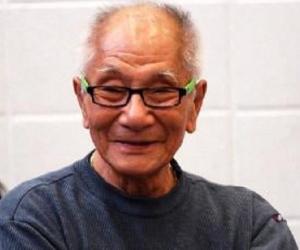
Zhuge Liang, or Kong Ming, was a Chinese strategist of the Three Kingdoms Period. Legend has it that he had supernatural powers and had invented a number of things, such as a crossbow that shot multiple arrows. His habit of living in seclusion earned him the nickname The Hidden Dragon.
Liu Xiaobo was a Chinese activist, literary critic, and philosopher. He is best remembered for organizing campaigns that aimed at ending the one-party rule in China. He was honored with the 2010 Nobel Peace Prize for his struggle for human rights in China. Liu is the first Chinese citizen to be honored with a Nobel Prize while residing in China.
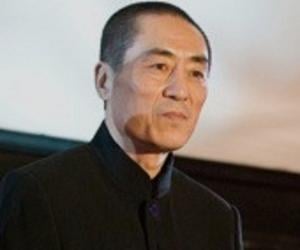
Part of the Chinese Fifth Generation of filmmakers, Zhang Yimou is best known for his Academy Award-nominated films Ju Dou, Raise the Red Lantern, and Hero. His most expensive film, The Great Wall, was, however, a box-office failure. He also directed part of the 2008 Beijing Olympics opening ceremony.
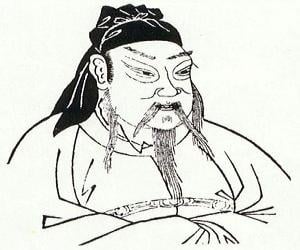
Guan Yu was nicknamed Beautiful Beard for his long, flowing beard. Featured in literary works such as Romance of the Three Kingdoms, Guan was a Chinese military general who served Liu Bei of the Eastern Han dynasty. Lord Guan is now revered as a deity in Chinese folk culture.
Liu Bei was a warlord in the Eastern Han dynasty. He is credited with founding the state of Shu Han. Liu Bei went on to reign as the emperor of Shu Han from 221 until his death in 223. Liu Bei is best remembered for his remarkable skills as a leader and politician. His life has inspired several TV series.
Vincent Tan is a Malaysian Chinese investor and businessman. He is credited with founding Berjaya Corporation Berhad, a Malaysia-based corporation that operates a wide range of businesses. In 2010, Tan was named in the Forbes' billionaire list. Also known for his philanthropic efforts, Vincent Tan founded the Better Malaysia Foundation, which grants scholarships and interest-free loans to students in need.
Hans Zhang is a Chinese actor, host, and singer. He is known for playing important roles in TV series like Meteor Shower, The Queen of SOP, Boss & Me, and Heroes in Sui and Tang Dynasties. Over the years, Hans Zhang has won several prestigious awards, such as Asian Idol Awards, China TV Drama Award, and Seoul International Drama Award.
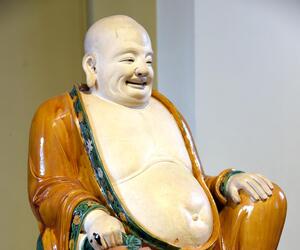
Legendary 10th-century Chinese monk Budai, is better known as The Laughing Buddha and The Fat Buddha. Named after the “budai” or cloth sack that he carried with him, he was considered an avatar of Maitreya, or the future Buddha. His figures adorn many homes, as a symbol of prosperity and contentment.
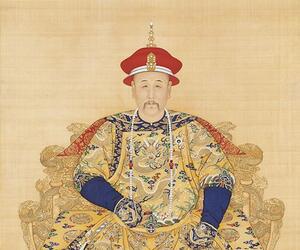
Yongzheng reigned over the Qing dynasty as its fourth Emperor from 1722 to 1735. He was also the third Qing emperor to reign over the Eighteen Provinces. Remembered for his hard-working nature, Yongzheng's most prominent objective was to come up with an effective government at minimum expense. Yongzheng, who cracked down on corruption, is credited with forming the Grand Council.
One of the most significant and controversial leaders of the 20th century, Mao Zedong was a communist revolutionary and the founding father of the People's Republic of China which he governed as the chairman of Chinese Communist Party. He is appreciated for numerous development work but is criticised for his authoritarian regime and policies which resulted in millions of deaths .
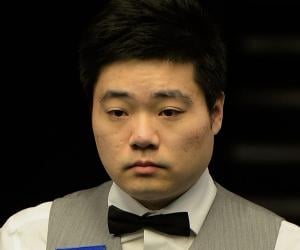
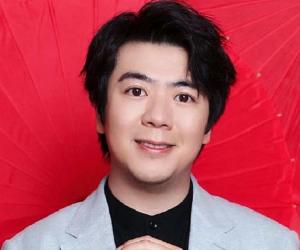
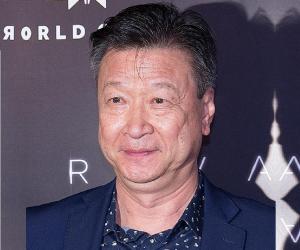
Hongwu Emperor is credited with founding the Ming dynasty, which ruled over China from 1368 to 1644. He reigned as the first emperor of the dynasty from 1368 until his death in 1398. Under his reign, China witnessed many unprecedented political reforms. He is also credited with establishing the famous secret police organization, the Embroidered Uniform Guard.
